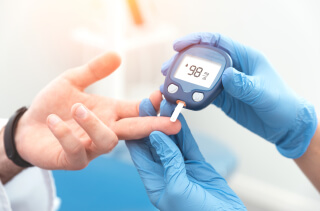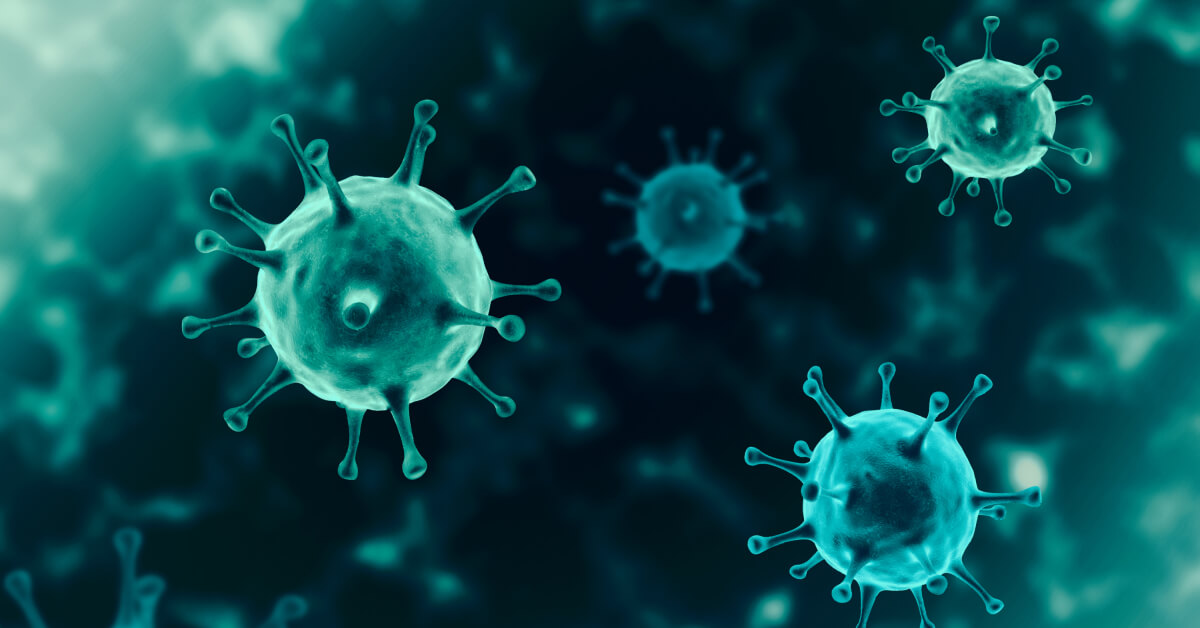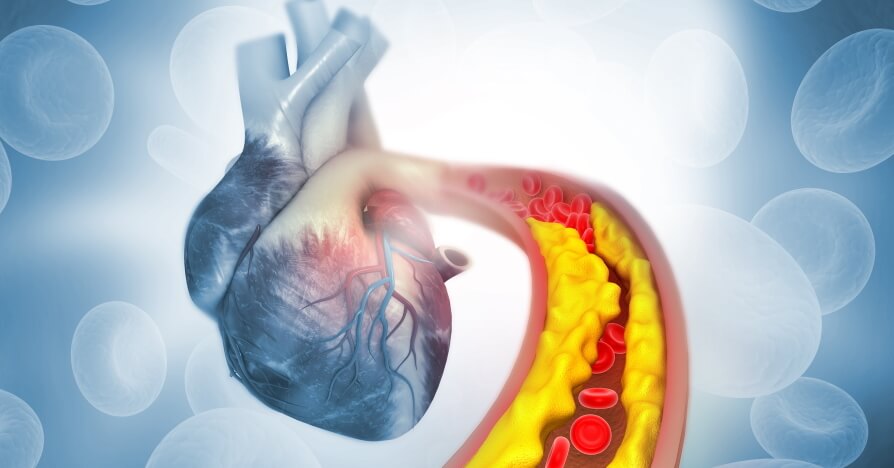
[Company Name] Blog
Diabetes
Published 06.11.2021
Typical adult onset or type 2 diabetes is where your body makes plenty of insulin, it just doesn’t use the insulin effectively to keep your blood sugar in normal range. Normally your blood sugar should be around 100 or less fasting, which is first thing in the morning before you have had anything to eat, and stay under 140 1-2 hours after a meal. Diabetes can be diagnosed by consistently elevated blood sugars or an elevated A1c, which is a measure of your body’s overall blood sugar control in the last 2-3 months. A normal A1c is up to 5.6, pre diabetes is from 5.7 to 6.4 and you are diagnosed with diabetes if the A1c is 6.5 or above. The goal of diabetes treatment is to keep your A1c under 6.5 if you are young and under 7.5 if you are a little older. Pre diabetes is not to be ignored. Your body is sending you a warning signal. You can reverse pre diabetes through diet, exercise and weight loss. You may still become a diabetic but the goal is to put it off as long as possible to decrease your risk of diabetic complications.
Diabetes is caused by a variety of things but genetics plays a big part. If your parents have diabetes you have a much greater risk of becoming diabetic yourself. Race and ethnicity also play a part with African Americans, Hispanics, and Native Americans have a much higher risk. Being overweight or obese also increases your risk of diabetes. Lack of exercise and poor diet also contribute to your risk of diabetes. Diabetes affects all parts of your body. It dramatically increases your risk of heart attack and stroke. You don’t die from diabetes itself, you die from cardiovascular complications like heat attacks or strokes. Diabetes can affect your vision and lead to slowly progressive vision loss, so all diabetics should get an eye exam yearly. Diabetes causes damage to the millions of little filters in your kidneys that filter the blood and get rid of waste into your urine, which can lead to permanent damage and kidney failure requiring dialysis. Diabetes causes damage to the nerves throughout your body which can cause numb feet and erectile dysfunction.
There are lots of lifestyle changes you can make to decrease your risk of diabetes and to treat diabetes if you have it. Cutting back on carbohydrates in your diet is the most important thing. You want to almost eliminate simple carbs from your diet like candy, cookies, cake, ice cream, soda and fruit juice drinks. These should be rare treats like a couple of times a month. You also want to cut back on complex carbohydrates like bread, rice, pasta, corn and potatoes. These are broken down into simple sugars in your body and can raise your blood sugar. Whole grains like whole wheat bread and brown rice are still broken down to simple sugars in your body but at a much slower rate than the processed white versions and cause less of a spike in blood sugars after meals. Also, they have more fiber so they keep you feeling full longer. A serving of rice or pasta is the size of a computer mouse. A diabetic should aim to get 4-5 servings of carbohydrates a day or about 40 grams of carbohydrates a meal. On an eight inch plate half of your plate should be vegetables or salad, about a quarter of the plate protein like chicken, lean beef or pork, fish or eggs, and a quarter carbohydrates like brown rice, whole wheat pasta, potato, or beans, which also are a good protein source. Dessert or snack should be a piece of fruit, like an apple or orange or small bunch of grapes. Make some frozen yogurt out of vanilla yogurt and frozen fruit with no added sugar in the blender. Make sure you don’t drink your calories, stick with water, slightly sweetened tea, or coffee. Flavored coffee drinks can have 500 calories of sugar and fat in them and presweetened tea has as much sugar as soda. Commercially made fruit and vegetable smoothies have lots of added sugar and should be avoided. Make your own smoothies with no sugar, just frozen fruit, yogurt and vegetables. They are delicious. You have to learn how to read a food nutrition label and measure out a serving so you know how big it is. Pay close attention to how many servings per container a food has when buying processed food. You should eat mostly fresh fruit and vegetables and cook your own meals. This doesn’t mean you need to cook every night. I always cook in large batches and then freeze several meals as well as what I am having for dinner. That way I always have a variety of healthy frozen dinners I can just pop in the microwave when I get home. Soups and stews and stir fry dinners freeze and then microwave well. A positive goal is to eat 5 servings of fruits and vegetables a day. If you do this everything else falls into place.
Another important lifestyle change to make is moving more and exercising. Get up and move every hour at a minimum. Go up and down the stairs for no reason. Stand while you work on the computer. Walk outside around the building at lunch instead of sitting somewhere eating. Drive to a local park at lunch and have a quick bite then walk the rest of the time. Washing the car, scrubbing the kitchen floor, mowing the lawn all get you moving. You also need exercise though. Exercise is where sweat is running down your face and neck, your heart is pounding at a rate of at least 130 beats per minute, and you are winded and breathing hard. You want to continue doing the activity for at least 30 minutes when you reach this level of activity. You can get this through brisk walking up and down some hills, working out to exercise videos, riding an exercise bike at a good pace, or jogging. You should be doing something every day, so have a variety of things to do so you don’t get bored. Take an exercise class with a friend or meet up for a walk in the park. You have got to put activity and exercise back into your life. We were designed to be moving not sitting all day. Exercising for an hour a day is only 5% of your day.
Maintaining a healthy weight is also important. The goal is to get your BMI or body mass index less than 25. You can look it up on the chart in the obesity section. For many of us, this means losing some significant weight but it can be done. All that extra fat sucks up the insulin our body needs to maintain healthy blood sugars. Just losing 10% of your body weight can make a huge difference in your blood sugar control. Not everyone who has diabetes is overweight and not all overweight people have diabetes. There is a lot about diabetes we just don’t know yet.
There are many different medications we can use to treat diabetes and most people can be controlled with oral agents but some people need insulin as well. There are several different classes of diabetes medications but starting with metformin which is an older medication is always recommended first line treatment. It is cheap, doesn’t have many side effects, is very effective, and can help you lose weight. There are several newer classes of medications as well that can help control your diabetes with varying side effects, effectiveness, and cost. There are also some newer non insulin injectable medications that can help you lose weight and control your blood sugars. Some people will need insulin to control their diabetes but you can’t look at it like you have failed if you do need to use it. Insulin comes in many forms but the most common is once a day basal insulin. If your diabetes is really hard to control you may also need to inject insulin with each meal. Most insulin now comes in pen cartridges that you can carry around with you if needed and don’t need refrigeration. The needles just screw onto the cartridges and are very tiny and only about a 1/4 of an inch long. The cost of insulin has skyrocketed in the last couple of years so for some people I am prescribing the older insulins at significant price savings.
Book an Appointment

Sexually Transmitted Infections

There are many different sexually transmitted diseases that can affect people. Learn about the vari...
Alcoholism

Alcoholism is a serious issue that plagues many Americans. Dr. Elener discusses the effects, causes,...
Cholesterol

Dr. Elener explains cholesterol, the waxy substance that is made in your liver. She explains what it...